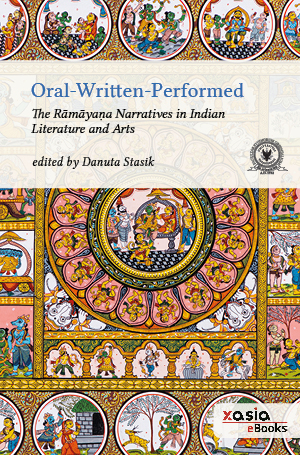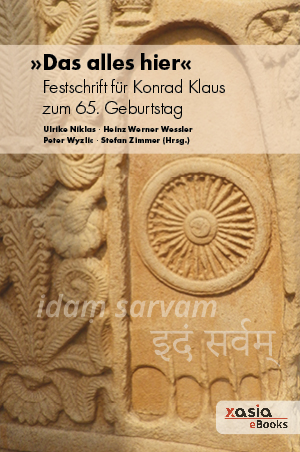Stasik, Danuta
Oral-Written-Performed: The Rāmāyaṇa Narratives in Indian Literature and Arts
The Rāmāyaṇa tradition is well known for an inexhaustible variety of forms and narrative structures transmitted by different media. Oral–Written–Performed examines selected textual, oral, visual and performing forms in which the Rāma story has functioned in Indian literature and arts. It also investigates the techniques that transform the Rāmāyaṇa narratives. The volume addresses the question how narratives become vehicles for literary conventions and ideologies expressive of diverse sectarian concerns, or cultural values. It is an excellent companion to earlier publications on the Rāmāyaṇa tradition and indispensable reading for students of South Asian literature, arts and religion.
»Das alles hier«: Festschrift für Konrad Klaus zum 65. Geburtstag
»Das Weltall, die Gesamtheit des in der Welt Vorhandenen, wird in den Brāhmaṇas gewöhnlich mit dem Ausdruck idaṃ sarvam ›das alles hier‹ bezeichnet…«, reads Konrad Klaus' doctoral thesis Die altindische Kosmologie (1986). The completion of his 65th year – at the same time the completion of two decades as a university professor in Bonn – is a welcome occasion for us to honour Konrad Klaus with this Festschrift. »Das alles hier« may gladly also be interpreted in terms of the honoree's life's work to date: A rich academic work with multiple activities in teaching, research and science management with a large number of brilliant publications on philological and cultural-historical issues as visible signs. Konrad Klaus has a worthy place in the scholarly tradition of Indology, which began in Germany with the establishment of the first chair dedicated to Indian philology at the newly founded University of Bonn in 1818. It would be mistaken to think that the 200th anniversary in 2018 was a kind of early funeral. The transition to South Asian Studies with a renewed profile is part of the life's work of Konrad Klaus, who, although himself a classical Indologist, fully supported and benevolently accompanied this reorientation.









